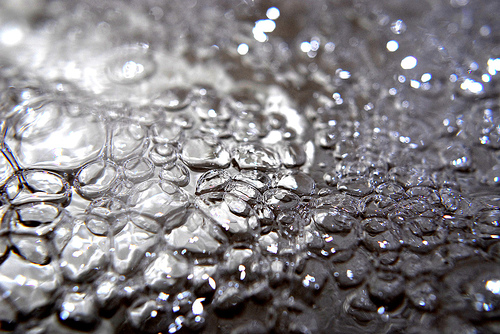by Michelle Sutton-Kerchner
Kidneys are a body part we often take for granted. We tend not to think about them, as they conveniently function every day, all day. Yet, those with unhealthy kidneys recognize the respect they deserve …
Close to 30 million adults in the United States suffer from chronic kidney disease, with many others at high risk. Health conditions on the rise today contribute to this statistic, including type 2 diabetes, heart disease, and high blood pressure. Exercise helps prevent such causes as well as their negative impact on the kidneys. And, new studies show a regular fitness routine benefits those already suffering kidney issues.
Kidneys: A Little Refresher
 Two kidneys function as the filtering system for the body. Every 24 hours, about 200 quarts of fluid pass through them. Two quarts contain filtered waste products like chemicals and other toxins, which are excreted in urine. The remainder contain useful substances like protein and red blood cells, which are recovered and returned to the blood stream. Kidneys also balance levels of sodium, potassium, and calcium; release hormones to help regulate blood pressure; and maintain the blood’s pH balance.
Two kidneys function as the filtering system for the body. Every 24 hours, about 200 quarts of fluid pass through them. Two quarts contain filtered waste products like chemicals and other toxins, which are excreted in urine. The remainder contain useful substances like protein and red blood cells, which are recovered and returned to the blood stream. Kidneys also balance levels of sodium, potassium, and calcium; release hormones to help regulate blood pressure; and maintain the blood’s pH balance.
When this system fails, it cannot filter out waste and kidney disease ensues. Dialysis becomes necessary, which filters the body’s blood by machine. This is a lengthy process done on a very frequent basis– a life changer. A kidney transplant is also an option.
Compromised Kidney Function
According to the National Kidney Foundation, “Exercise benefits those with kidney disease by improving muscle function, lowering blood pressure, lowering cholesterol, keeping a healthy body weight, and improving sleep.” As with all aspects of health, healthy kidneys are better maintained through regular exercise.
A study released last month in the Clinical Journal of the American Society of Nephrology showed kidney disease patients benefit from exercise, despite co-existing medical conditions common in this population. A weekly regimen of 150 minutes of moderate intensity exercise was included in their usual care program.
Participants experienced an 11 percent increase in maximal aerobic capacity after one year. Some lost weight as well. Heart function improved. This is especially significant because of the high incidents of premature death from heart disease in those with kidney disease. All these benefits were accomplished safely.
When done correctly, fitness is possible for those challenged by multiple health issues. Although not a cure for kidney disease, fitness can reduce further kidney damage by keeping the rest of the body functioning at peak and improving quality-of-life. It also prevents risk factors for kidney disease, like type 2 diabetes, obesity, and cardiac conditions.
Kidney Stones

Changes in the balance of water, salt, and minerals found in urine lead to kidney stones. Poor diet, habitual insufficient water intake, gout, Crohn’s disease, and genetics are common causes of kidney stone formation. Stones may be as small as a grain of sand or as large as a golf ball. The size often determines the effort needed to pass them, either through urination or medical intervention.
A recent study followed 85,000 women ages 50 and older through the government-funded Women’s Health Initiative. Diet, body mass index, and regular exercise were examined. After eight years, the amount of weekly exercise performed correlated with lower incidence of kidney stones. Exercise intensity did not have an effect, only the amount. This again proves any type of exercise is better than none.
According to the study’s leader, Dr. Mathew Sorensen of the University of Washington School of Medicine in Seattle, “Every little bit [of exercise] makes a difference. The intensity doesn’t matter – just getting exercise does.” Some experts claim exercise has a protective effect on the body overall, including changing the way the body processes nutrients and fluids.
Exercisers may practice healthier habits, which affects their diet, sodium intake, and bone health. Workouts help bones retain calcium on their own, preventing the need for supplements. Calcium supplements are sometimes considered related to kidney stone formation. Recent governmental guidelines advise against calcium supplements in healthy older women. Their benefit to bone health is insignificant compared to risk of kidney stone formation.
Perhaps exercisers also drink more water, and better monitor fluid intake overall. This prevents salts, minerals, and other substances in urine from sticking together and forming stones. Poor hydration is the most common cause of stones.

An additional study emphasized aquatic exercise as a preferred method to improve kidney function. Improved circulation increases the rate blood is filtered through the kidneys. Aerobic exercises are great for this. A study reported in the Archives of Physical Medicine and Rehabilitation showed dialysis patients who performed low-intensity exercise more efficiently filtered urea (the main component of urine filtered from the blood by the kidneys) than their sedentary counterparts.
Kidney stones are more common in men than women. Unfortunately, women are catching up on this statistic. The incidence of kidney stones rose 70 percent over the past 15 years, mostly among women. Nine percent of the population will form a kidney stone at some point in life. Further studies on exercise’s benefit to younger women and men are on the agenda.
Exercise has long been known to reduce the risk of health conditions that contribute to kidney stones, mainly heart disease, high blood pressure, obesity, and type 2 diabetes. These health concerns increase risk of kidney issues, in general.
Worldwide, approximately 60 million people have chronic kidney disease. With proof this is another health factor that benefits from exercise, it makes sense to add it to preventative and treatment programs. Stay hydrated and fit. If not, you may have plenty of time to dwell on it while in dialysis.
Sources
“Can Exercise Improve Kidney Function?” by Cindy Anderson at www.JillianMichaels.com.
“Exercise May Cut Women’s Risk of Kidney Stones,” by Marilynn Marchione at www.huffingtonpost.com.
“Kidney Disease Patients Can Benefit from Exercise,” at www.health.com.
www.diabetes.org
www.kindney.org
www.webmd.com
Image Credits
Today (introductory photo): www.flickr.com/photos/aryaziai/8735927902/
Abstract water: www.flickr.com/photos/davidchief/517937786/
 Fitness & Wellness News Your Source for Fitness News, Wellness News, Health News, and Nutrition News!
Fitness & Wellness News Your Source for Fitness News, Wellness News, Health News, and Nutrition News!




